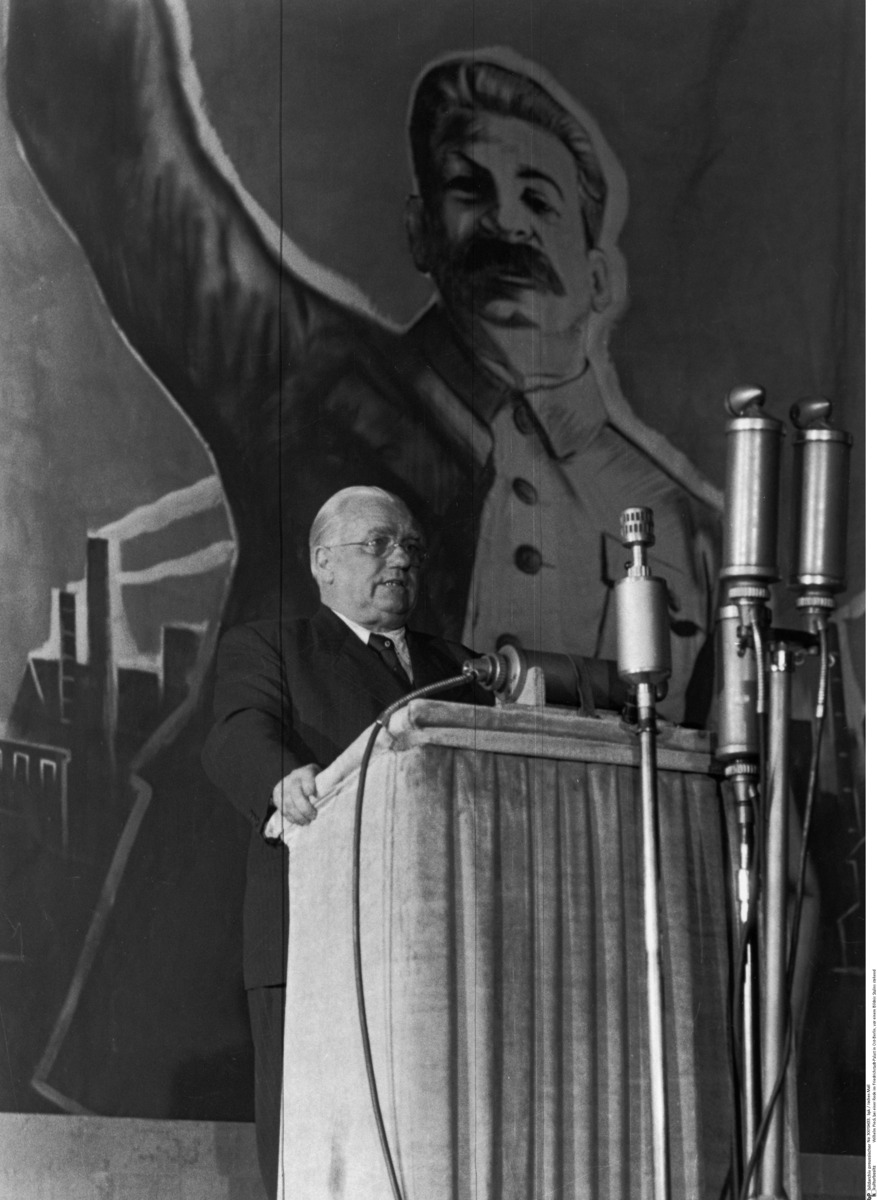Abstract
On October 11, 1949, Wilhelm Pieck (seen here in front of a picture
of Stalin) was elected the first president of the GDR by the Provisional
People’s Parliament [Provisorische
Volkskammer] and the Provisional States' Chamber
[Provisorische Länderkammer].
According to the GDR constitution, which took effect on October 7, 1949,
the tasks of the president of the republic included promulgating laws,
swearing in members of the government when they took office,
representing the GDR in international relations, concluding and signing
treaties with foreign powers, accrediting and receiving ambassadors and
envoys, and exercising the right to grant pardons. After Pieck’s death
on September 7, 1960, the People’s Parliament, through the law of
September 12, 1960, abolished the office of president and created a
collective organ, the State Council
[Staatsrat], to replace it. The State
Council assumed the functions and tasks of the office of the president,
giving its chairman a leading position. The first chairman of the State
Council was Walter Ulbricht; his deputies were the chairmen of the block
parties.
